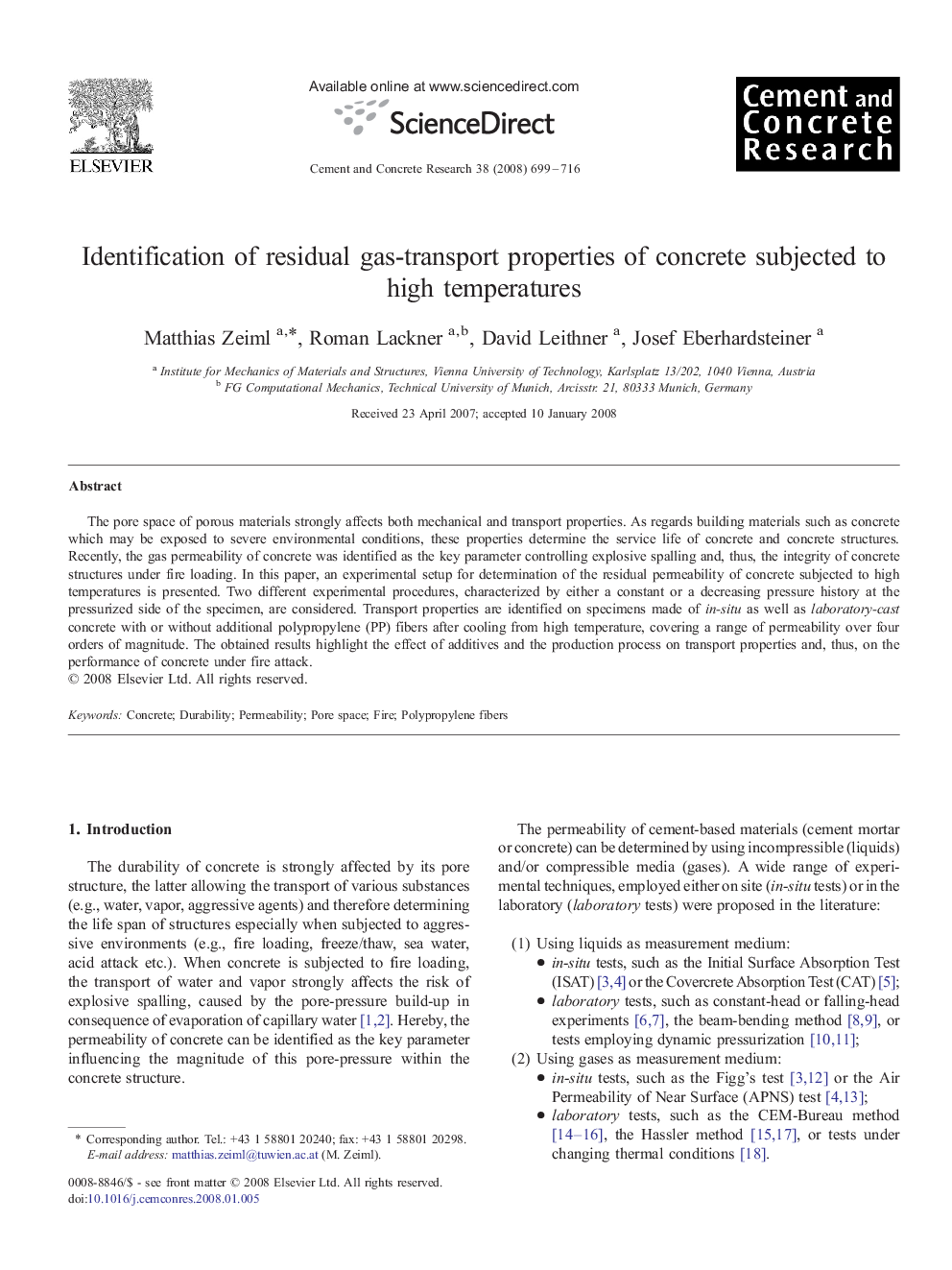| Article ID | Journal | Published Year | Pages | File Type |
|---|---|---|---|---|
| 1457495 | Cement and Concrete Research | 2008 | 18 Pages |
The pore space of porous materials strongly affects both mechanical and transport properties. As regards building materials such as concrete which may be exposed to severe environmental conditions, these properties determine the service life of concrete and concrete structures. Recently, the gas permeability of concrete was identified as the key parameter controlling explosive spalling and, thus, the integrity of concrete structures under fire loading. In this paper, an experimental setup for determination of the residual permeability of concrete subjected to high temperatures is presented. Two different experimental procedures, characterized by either a constant or a decreasing pressure history at the pressurized side of the specimen, are considered. Transport properties are identified on specimens made of in-situ as well as laboratory-cast concrete with or without additional polypropylene (PP) fibers after cooling from high temperature, covering a range of permeability over four orders of magnitude. The obtained results highlight the effect of additives and the production process on transport properties and, thus, on the performance of concrete under fire attack.
